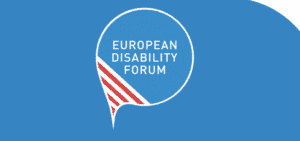The International Disability Alliance (IDA) together with the European Disability Forum (EDF) held an online workshop dedicated to exploring how to use the United Nations (UN) Optional Protocols to defend the rights of women and girls with disabilities. The workshop took place on the 10th of May 2021. The workshop was introduced and moderated by Ms Ana Peláez Narváez, the Vice President of the EDF and the Vice Chair of the UN Committee of the Convention on the Elimination of All Forms of Discrimination against Women (CEDAW). During the discussion two Option Protocols were discussed, Optional Protocol to the Convention on the Rights of Persons with Disabilities and the Option Protocol to the Convention on the Elimination of All Forms of Discrimination against Women.
The UN Optional Protocol to the Convention on the Rights of Persons with Disabilities, is an additional agreement next to the United Nations of Convention on the Rights of Persons with Disabilities (97 countries ratified, 28 countries are signatories, 73 countries have taken no action).
This protocol established an individual complaints mechanism for persons with disabilities who allege that their rights under the Convention have been denied. The individual complaints mechanism is a process where an individual brings forth claims of the violations of her/her human rights enshrined in the UN CRPD to the attention of the Committee of the UN CRPD. Theresa Krumova, Human Rights Officer at the Office of High Commissioner for Human Rights provided a legal insight on how individuals can bring complaints to the UN Committee on the Rights of Persons with Disabilities (UN CRPD).
The UN Optional Protocol to the Convention on the Elimination of All Forms of Discrimination against Women is the protocol that establishes complaint and inquiry mechanism for CEDAW Committee. The protocol has led to several decisions against the State Parties to CEDAW on issues such as domestic violence, parental leave and forced sterilisation.
Both presenters Ms Ishita Dutta, Programme Manager at the International Women’s Rights Watch in Asia Pacific and Mr Ignacio Perez Bello, Human Rights Adviser at the IDA provided examples of complaints received by the CEDAW Committee using the UN optional protocol, which included complaints from deaf persons as seen in the case of R.P.B. V Philippines, 2014. It is an important case as the Committee did not just ensured access to justice for the plaintiff but also invested in ensuring that plaintiff is able to live her life.
The event was concluded by Ann Campbell, Co-Executive Director of Validity Foundation. She presented her personal experience using the individual complaints mechanism to safeguard the rights of persons with disabilities living in institutions located in Hungary who have seen their rights violated.
In terms of relevance for the deaf community, this workshop provided examples and step by step guide as to how and when the deaf persons could use these Optional Protocols to advance and protect the rights of deaf women and girls. It is important to note that as individual cases based on discrimination and brought to the Committees will have an impact and it can help create and develop the universal human rights standards.
You can watch recording of the event here.













